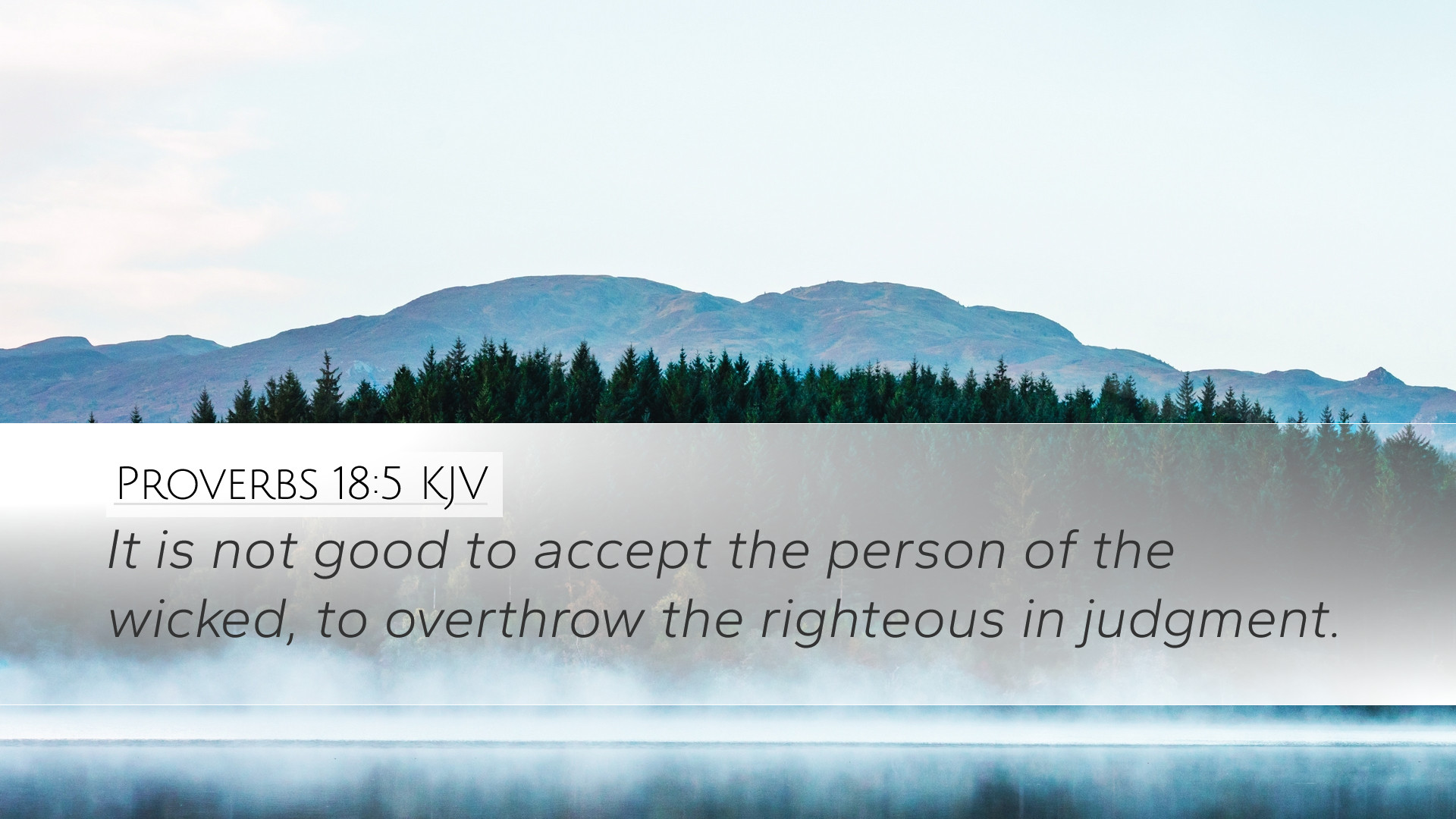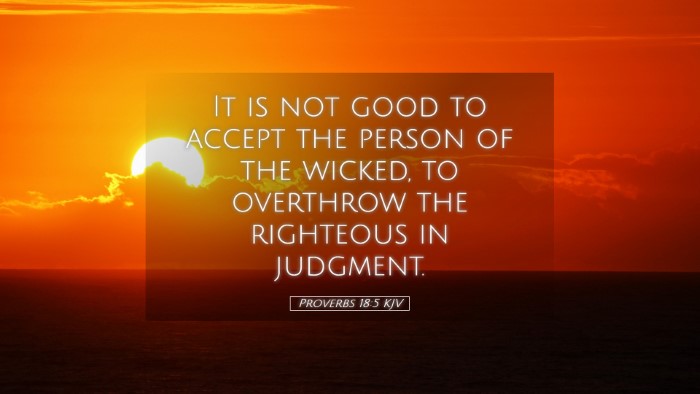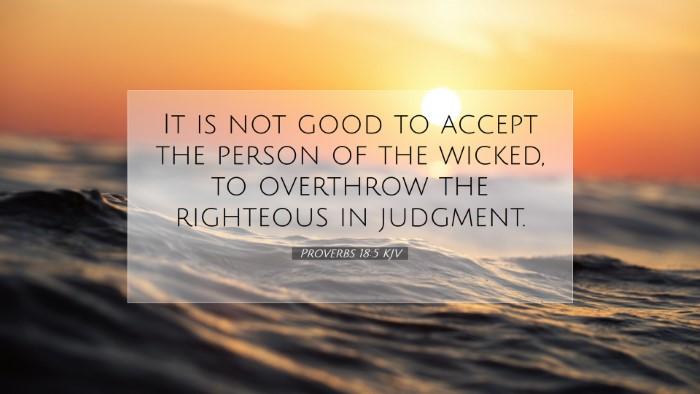Commentary on Proverbs 18:5
Verse: Proverbs 18:5
"It is not good to accept the person of the wicked, to overthrow the righteous in judgment."
Introduction
The book of Proverbs is rich in wisdom literature, providing timeless insights into righteous living and moral conduct. Proverbs 18:5 discusses the importance of integrity and justice, emphasizing how favoritism toward the wicked can corrupt judgment and lead to injustice. This commentary synthesizes insights from several public domain sources, including Matthew Henry, Albert Barnes, and Adam Clarke.
Exegesis of the Verse
- Understanding the Core Message:
The verse warns against the practice of showing partiality to the wicked. Accepting the person of the wicked implies not only a moral failure but also a systemic injustice that undermines the foundations of righteousness and truth.
- Implications for Justice:
According to Matthew Henry, the verse highlights the reality that favoring the wicked over the righteous affects societal justice. Henry notes, “Justice is perverted when the innocent are oppressed and the guilty are favored.”
- Contrast of Righteousness and Wickedness:
Albert Barnes expands on the adversities faced by the righteous when the wicked are favored. He interprets the verse as a cautionary tale, suggesting that the societal implications of such favoritism can be dire, leading to a culture of corruption.
Thematic Insights
- Integrity in Leadership:
Righteous judgment is paramount for leaders and judges. Adam Clarke emphasizes that leaders must be vigilant in not allowing personal biases to skew their decisions. Clarke states, “True discernment can only come from adherence to God's standards of righteousness.”
- The Dangers of Favoritism:
The text serves as a reminder that allowing bias towards the wicked can lead to societal decay. As Barnes notes, “When justice becomes a commodity, righteousness is the first casualty.”
- Reflections on Society’s values:
The acceptance of wickedness in society often leads to the erosion of moral standards. Henry emphasizes the cultural implications, encouraging individuals to reflect on how societal norms can shape the judgment of leaders.
Practical Applications
- Personal Reflection:
Readers are encouraged to assess their own biases. Do they show favoritism in their judgments? It is crucial for believers to align themselves with God's truth, as impartially standing for righteousness is central to biblical ethics.
- Church Leadership:
For pastors and church leaders, this verse highlights the necessity of upholding justice. Leaders must discharge their duties impartially, for failure can lead to disillusionment among church members.
- Social Justice Advocacy:
In a broader context, Proverbs 18:5 calls for the church to advocate for justice in society. Engaging with social issues through the lens of this teaching can lead to transformative actions that uphold the rights of the oppressed and challenge systemic injustices.
Conclusion
Proverbs 18:5 serves as a powerful reminder of the essential nature of justice and integrity. The insights gathered from the commentaries reveal the depth of meaning embedded in this verse. Favoring the wicked leads to a breakdown of justice, potentially affecting entire communities. Therefore, it is imperative for individuals, especially those in positions of authority, to adhere to the principles of righteousness laid out in Scripture.
Through rigorous self-examination and commitment to truthful judgment, God's people can foster a culture of integrity that reflects the righteousness of God in both their personal lives and wider society.


